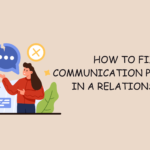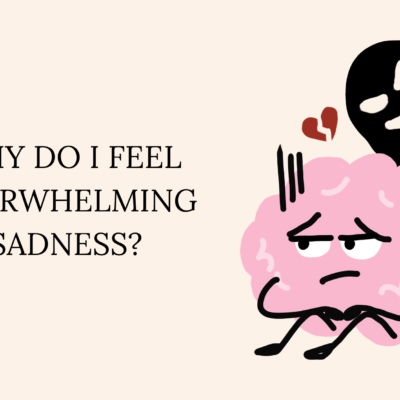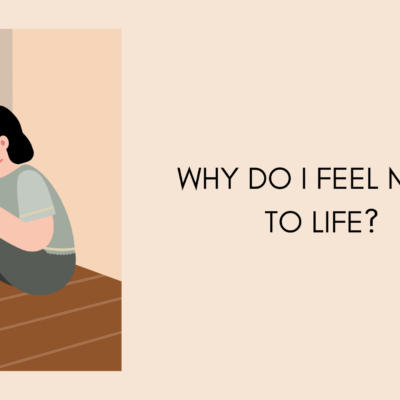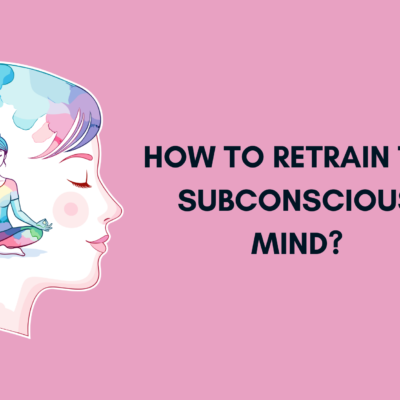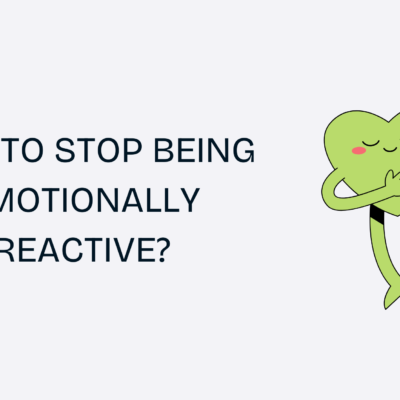How to Deal with Overthinking and Anxiety in a Relationship: Relationships can bring joy, love, and connection, but they can also awaken our deepest insecurities, especially if we struggle with overthinking and anxiety. You may find yourself constantly analyzing your partner’s words, worrying about the future, or replaying past conversations over and over in your mind. If this sounds familiar, know that you are not alone—and more importantly, this pattern can be addressed and healed.
In this article, we’ll explore the roots of relationship overthinking and anxiety, how it affects the bond you share with your partner, and most importantly, how to manage and reduce it so you can experience a more peaceful, secure connection.
Also Read:
Understanding Overthinking and Anxiety in Relationships
What Is Relationship Overthinking?
Overthinking in a relationship involves excessive mental analysis, worry, or doubt. You might obsess over texts, question your partner’s feelings, or fear abandonment. These thoughts tend to be repetitive and often unrealistic, fueled more by fear than facts.
Examples of overthinking might include:
- “Why did they take so long to reply?”
- “Are they losing interest in me?”
- “What if they find someone better?”
How Anxiety Fuels Overthinking
Anxiety, particularly attachment anxiety, can magnify overthinking. It creates a loop where you crave reassurance but doubt it when you receive it. You may interpret neutral behaviors as signs of rejection, and small issues become overwhelming threats to your sense of safety.
Relationship anxiety can stem from:
- Past emotional wounds or trauma
- Fear of abandonment or rejection
- Low self-worth or insecurity
- Negative beliefs about relationships
The Impact of Overthinking on Relationships
Uncontrolled overthinking and anxiety can take a toll on even the healthiest of partnerships. Here’s how:
- Creates Emotional Distance: Constant questioning or accusations can make your partner feel mistrusted or exhausted.
- Triggers Miscommunication: Anxiety-driven assumptions lead to misreading intentions and misinterpreting words.
- Reduces Intimacy: Emotional availability declines when fear dominates the relationship space.
- Builds Dependency: The need for constant reassurance can lead to emotional dependence, which burdens the other partner.
- Erodes Trust: Both self-trust and partner trust weaken when fear becomes the dominant lens.
The good news? With awareness and effort, you can break this pattern and build healthier, calmer emotional responses.
How to Stop Overthinking and Calm Anxiety in Your Relationship
1. Recognize the Patterns
Start by noticing when you’re overthinking. Is it triggered by a delay in response, a change in tone, or a partner being busy? Journaling or simply observing your emotional reactions without judgment can help identify what sets off the cycle.
Ask yourself:
- “Is this a fact or a fear?”
- “What is the evidence for this thought?”
- “Am I reacting to the present or the past?”
Awareness is the first and most powerful step toward change.
2. Understand Your Attachment Style
Understanding your attachment style—whether anxious, avoidant, or secure—can provide deep insight into how you behave in relationships.
- Anxious attachment often craves closeness but fears abandonment.
- Avoidant attachment tends to fear vulnerability and may withdraw.
- Secure attachment feels safe with intimacy and independence.
If you recognize yourself as having an anxious attachment style, working on building self-soothing tools and emotional regulation will be essential.
3. Practice Self-Soothing Techniques
When you feel anxious, your nervous system goes into overdrive. Instead of reacting immediately, practice calming your mind and body:
- Take deep breaths—inhale for 4, hold for 4, exhale for 6.
- Repeat calming affirmations like “I am safe and loved.”
- Engage in grounding activities: go for a walk, take a shower, journal your thoughts, or listen to calming music.
The goal is to respond from calm awareness, not emotional overwhelm.
4. Challenge Negative Thought Patterns
Overthinking often comes from distorted thinking: catastrophizing, mind-reading, or assuming the worst. Start questioning those thoughts.
Example:
- Thought: “They didn’t say ‘I love you’ today. They’re falling out of love.”
- Challenge: “Is there any real evidence of this, or am I projecting fear?”
Cognitive restructuring—replacing irrational thoughts with balanced ones—can slowly rewire your mental habits.
5. Communicate Your Needs Clearly and Kindly
Rather than acting from anxiety (e.g., accusing, withdrawing, or becoming clingy), express your feelings directly but calmly.
Try using “I” statements:
- “I felt a little anxious when I didn’t hear back from you. I know you might’ve been busy, but I just wanted to check in.”
When you own your emotions without blame, your partner is more likely to respond with empathy rather than defensiveness.
6. Establish Healthy Boundaries
Overthinking can stem from not having enough space for your own life. Set emotional boundaries:
- Don’t overanalyze every text or interaction.
- Avoid constantly checking your partner’s social media or whereabouts.
- Give space—for yourself and them—to breathe, grow, and be.
Remember: love doesn’t mean constant access or control. A healthy relationship includes autonomy.
7. Focus on the Present, Not the Past or Future
Anxious minds often live in the past (“What if they hurt me like my ex did?”) or the future (“What if this doesn’t work out?”).
Train your brain to stay grounded in the present:
- Practice mindfulness or meditation.
- Ask yourself: “What’s happening right now?”
- Take it day by day, moment by moment.
Living in the present helps you see the relationship for what it is—not what your fears paint it to be.
8. Build Self-Worth Outside the Relationship
The more secure you feel within yourself, the less you’ll rely on your partner for emotional stability. Focus on:
- Personal goals and hobbies
- Friendships and social support
- Inner growth through therapy, reading, or journaling
When your self-esteem is strong, you won’t need constant validation from your partner—you’ll already know your worth.
9. Seek Reassurance—but in a Balanced Way
It’s okay to need reassurance, especially if you’re feeling vulnerable. But instead of seeking it obsessively or manipulatively, ask directly and occasionally.
You can say:
- “I’m feeling a little insecure today. Can I get a little extra love?”
- “It would really mean a lot if you could remind me how you feel about us.”
Healthy reassurance strengthens the bond when it’s mutual and respectful.
10. Consider Professional Help
If your anxiety or overthinking feels overwhelming or rooted in past trauma, therapy can be life-changing. A professional can help you:
- Heal past wounds
- Understand your patterns
- Learn emotional regulation techniques
- Build healthier relationship dynamics
Whether individual or couples therapy, seeking help is a sign of strength, not weakness.
What a Healthy Relationship Looks Like
While managing your internal world, it’s also essential to assess whether the relationship itself is supportive and emotionally safe.
A healthy relationship includes:
- Mutual respect
- Emotional safety
- Open communication
- Consistency in words and actions
- Freedom to be yourself
If your anxiety stems from real inconsistencies, red flags, or toxic behaviors, it’s worth evaluating if the relationship is right for you.
Final Thoughts
Overthinking and anxiety in relationships don’t make you broken or unlovable—they reveal areas where healing and self-awareness are needed. The key is not to silence your emotions but to understand and manage them so they don’t control you or sabotage your connection.
Start by creating space between your thoughts and your actions. Get curious about your patterns. Speak your truth with kindness. Build your own identity. And most of all, treat yourself with compassion as you learn to love in healthier, more secure ways.
You deserve peace in your relationship—not because everything is perfect, but because you’re showing up with emotional maturity and self-love.

